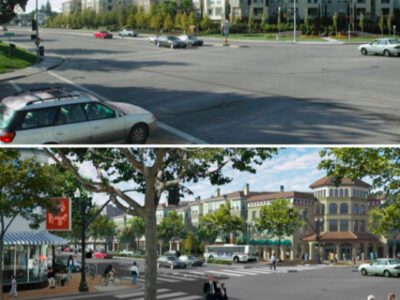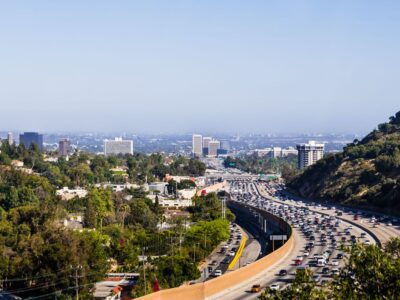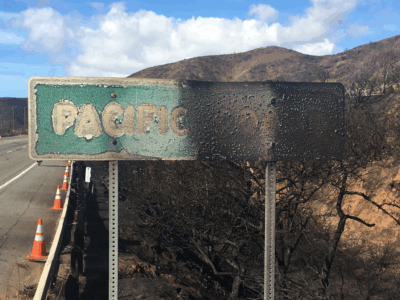Is It Green to Occupy a Vacant Urban Lot and Turn It Into a Farm?
A local branch of the Occupy movement has taken over a parcel of land near my house here in the Bay Area. The parcel is an agricultural research field owned by UC Berkeley. The protestors are apparently upset that Berkeley is considering turning some of its land into a development: specifically, senior housing, and commercial uses including a Whole Foods Market. They insist the parcel should instead be used for urban farming, and they unfurled a banner that read “Whole Food not Whole Foods.” Their argument is that it is much greener to have a “working urban agro-ecological farm” here than a fancy supermarket. Indeed, they specifically chose Earth Day as the day to begin their occupation to highlight that point.
But is it environmentally preferable to leave the parcel as an urban farm, instead of converting it to housing and a shopping area? The parcel is next door to a major street with frequent bus service; it’s also walking distance from a major apartment complex that provides housing for UC Berkeley graduate students. The senior housing would include well over 100 units (and therefore be fairly dense); the shopping center will certainly have parking, but it will also certainly attract a fair amount of walking users.
From a carbon footprint perspective, it seems pretty obvious that we’re better off using this parcel – close to other residential properties and transit – for uses that might involve a lot of individual trips. In other words, dense housing and shopping uses. That way, people who might want to go to Whole Foods instead of Safeway can either walk or make a short drive, rather than a current longer drive across down to another Whole Foods. Farms don’t really require the same number of trips – either for the people working on them, or for taking the produce away from the farms. So the carbon footprint of locating farms far away from cities is much lower.
Of course, there are other reasons that could support a protest at this site – perhaps you’re upset that the University is using the parcel for research, rather than for growing food. Or perhaps you believe there are justice or distributional reasons to object to a fancy supermarket instead of an urban farm. But, despite the protestors’ rhetoric, occupying a vacant urban lot to protest its development is probably not the green thing to do.
As a postscript – it turns out that the protestors occupied the wrong lot. The development is actually slated for a different vacant lot owned by the University, a couple of blocks away. In response to this revelation (which was apparently news to the activists), they now object to ongoing agricultural research on the property, saying that “we don’t really need any more corn research.” That might be news to the hundreds of millions of people around the world whose subsistence depends on corn. And the activists still hope to stop the development in any case.
In the meantime, the main impact of their activism at the moment appears to be derailing research by professors and graduate students at UC Berkeley. One final layer of irony here is that one of the professors whose work has been interrupted is Miguel Altieri – who does research “using modern ecological research methods to study traditional farming to design sustainable farming systems.”
Reader Comments
2 Replies to “Is It Green to Occupy a Vacant Urban Lot and Turn It Into a Farm?”
Comments are closed.







Interesting issue – and nice ironic twists. I agree that increasing urban density by developing the land will very likely reduce vehicle miles traveled and GHG emissions. On the other hand, urban agricultural developed on high-grade farm land offers benefits like hands-on learning, green space for recreation, community building, and even biodiversity. It’s a question of priorities and values. (I’m not taking sides).
SPUR just released a report on Monday with recommendations for how to expand and coordinate San Francisco’s urban agricultural on public land. http://www.spur.org/publications/library/report/public-harvest
Interesting issue – and nice ironic twists. I agree that increasing urban density by developing the land will very likely reduce vehicle miles traveled and GHG emissions. On the other hand, urban agricultural developed on high-grade farm land offers benefits like hands-on learning, green space for recreation, community building, and even biodiversity. It’s a question of priorities and values. (I’m not taking sides).
SPUR just released a report on Monday with recommendations for how to expand and coordinate San Francisco’s urban agricultural on public land. http://www.spur.org/publications/library/report/public-harvest